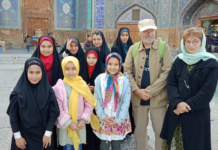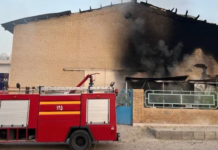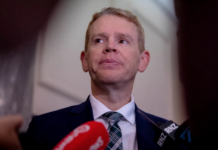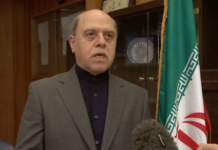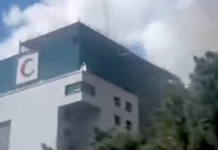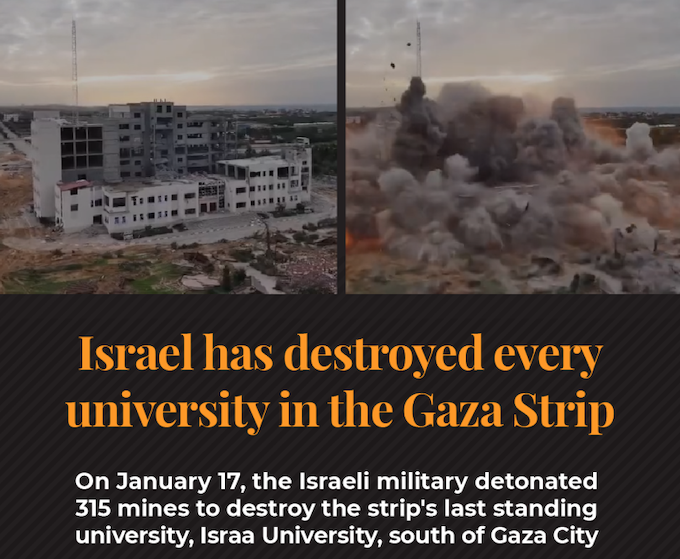
Following an open letter by Auckland University academics speaking out in support of their students’ right to protest against the genocidal Israeli war on Gaza, a group of academics at Otago University have today also called on New Zealand academic institutions to “repair colonial violence” and end divestment from any economic ties with Israel.
“In order to honour commitments to decolonisation and human rights, universities must act now,” says the open letter signed by more than 165 academics.
“As a te Tiriti-led university in Aotearoa New Zealand”, the academic staff said they were calling for the University of Otago to immediately:
- READ MORE: ‘Student revolution’: US protesters promise to continue despite crackdown
- Biden hails ‘press freedom, democracy’ but ignores Gaza media death toll of 142
- Other War on Gaza student protest reports
1. Endorse the Boycott, Divestment and Sanctions (BDS) movement and disclose and divest from any economic ties to the apartheid state of Israel,
2. Condemn those universities [that] have called on police to violently remove protesters from their campuses, and
3. Call for the protection of students’ rights to protest and assemble and endorse the aims of those protests — the immediate demand of ceasefire and longer term demands to end the apartheid, violence, and illegal occupations under which Palestinians continue to suffer.
The full letter states:
“Kia ora koutou,
“As we write this letter, universities across the United States have become battlegrounds. University administrators are sanctioning and encouraging violence against students and faculty members as they protest the genocidal violence in Gaza.
“Over 35,000 Palestinians have been killed—of those deaths, it is estimated that more than 13,000 of them have been children. Israel has destroyed all 12 universities in Gaza and targeted staff and students at those universities.
“The recent discovery of mass graves in Gaza, the hands and feet of many victims bound, has shocked the conscience of the world.
“In keeping with a long tradition of campus protest, students and staff are demanding their universities stop contributing to genocidal violence.
Student bodies brutalised
“In return, their bodies have been brutalised, their own universities endorsing their arrests. Universities should, at the very least, offer crucial spaces for protest, debate, and working through collective responses to urgent social issues. Instead, administrators have called in militarised police forces, fully decked out in anti-riot regalia to repress student protests.
“The results have been predictable: Professors and students have been arrested en masse and physically assaulted (beaten, pepper-sprayed, shot with rubber bullets, knocked unconscious, choked, and dragged limp across university lawns, their hands cuffed behind them).
“We at the University of Otago, an institution committed to acknowledging, confronting, and seeking to repair colonial violence, are part of a society that extends far beyond the borders of Aotearoa New Zealand.
“Acknowledging our history, including that history within its students’ experiences and working practices, compels us as a collective to call out and condemn colonial violence as and when we see it. It is not at all surprising that many of the protests in Aotearoa New Zealand calling for a ceasefire in Gaza have been organised and led by Māori alongside Palestinian activists.
“Most recently, the Ngāti Kahungunu iwi have come out against the genocide, with one of the rally organisers, Te Ōtane Huata, stating “Tino rangatiratanga to me isn’t only self-determination of our people, it is also collective liberation.”
“If it is to mean anything to be a te Tiriti-led university here in Aotearoa New Zealand, we must include acknowledgment that the history of Aotearoa New Zealand has been marked by consistent and egregious violations of that very treaty, and that such violations are indelibly part of settler colonialism.
“Violent expropriation, cultural annihilation, and suppression of resistance have been the hallmarks of this project.
Decolonisation and human rights
“In order to honour commitments to decolonisation and human rights, universities must act now. We thus call for the University of Otago to immediately:
“1. Endorse the Boycott, Divestment and Sanctions (BDS) movement and disclose and divest from any economic ties to the apartheid state of Israel,
“2. Condemn those universities who have called on police to violently remove protesters from their campuses,
“3. Call for the protection of students’ rights to protest and assemble and endorse the aims of those protests – the immediate demand of ceasefire and longer term demands to end the apartheid, violence, and illegal occupations under which Palestinians continue to suffer.
“In other words, the University must call for a liberated Palestinian state if it is to conceptualise itself as a university that seeks to confront its own settler-colonial foundations.
“The above position aligns with the named values of our universities here in Aotearoa New Zealand. It is our duty that we make these demands, particularly as Palestinians have seen the systematic destruction of their universities and educational infrastructure while Palestinian students of our universities have witnessed their families and friends targeted by the Israeli government.
“If the University of Otago wants to authentically position itself as an institution that takes seriously its role as a critic and conscience of society and acknowledges the importance of coming to grips with ongoing settler-colonial violence, it should take these demands seriously.
“We further support the Open Letter to Vice-Chancellor Dawn Freshwater from Auckland University Staff in Solidarity with Students Protesting for Palestine.”
In solidarity,
Dr Peyton Bond (Teaching Fellow, Sociology, Gender Studies and Criminology)
Dr Simon Barber (Lecturer in Sociology)
Rachel Anna Billington (PhD candidate, Politics)
Dr Neil Vallelly (Lecturer in Sociology)
Erin Silver (PhD candidate, Sociology)
Professor Richard Jackson (Leading Thinker Chair in Peace and Conflict Studies)
Dr Lynley Edmeades (Lecturer in English)
Dr Olivier Jutel (Lecturer in Media, Film and Communication)
Lydia Le Gros (PhD candidate & Assistant Research Fellow, Public Health)
Dr Abbi Virens (Postdoctoral Fellow, Centre for Sustainability)
Sonja Bohn (PhD candidate, Sociology)
Joshua James (PhD Candidate, Gender Studies)
Sophie van der Linden (Postgrad Student, Bioethics)
Dr Fairleigh Evelyn Gilmour (Lecturer in Gender Studies, Criminology)
Brandon Johnstone (Administrator, TEU Otago Branch Committee Member)
Dr David Jenkins (Lecturer in Politics)
Jordan Dougherty (Masters student, Sociology)
Rosemary Overell (Senior Lecturer in Media, Film and Communication)
Dr Sebastiaan Bierema – (Research Fellow, Public Health)
Dr Sabrina Moro (Lecturer in Media, Film and Communication studies)
Rauhina Scott-Fyfe (Māori Archivist, Hocken Collections)
Dr Lena Tan (Senior Lecturer, International Relations & Politics)
Cassie Withey-Rila (Assistant Research Fellow, Otago Medical School)
Duncan Newman (Postgrad student, Management)





